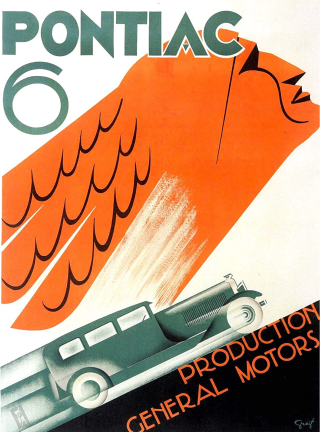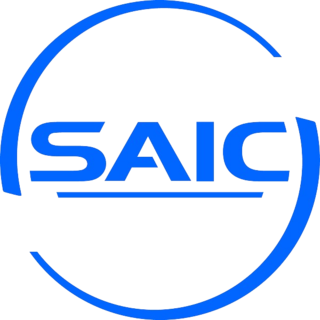Related Research Articles

The automotive industry comprises a wide range of companies and organizations involved in the design, development, manufacturing, marketing, selling, repairing, and modifying of motor vehicles. It is one of the world's largest industries by revenue. It is also the industry with the highest spending on research & development per firm.
Tata Motors Limited is an Indian multinational automotive manufacturing company, headquartered in Mumbai, India, which is part of the Tata Group. The company produces passenger cars, trucks, vans, coaches, buses.

SAIC Motor Corp., Ltd. is a Chinese state-owned automobile manufacturer headquartered in Anting, Shanghai. Founded in 1955, it is currently the largest of the "Big Four" state-owned car manufacturers of China, namely: SAIC Motor, FAW Group, Dongfeng Motor Corporation, and Changan Automobile, with car sales of 5.37 million, 3.50 million, 3.28 million and 2.30 million in 2021 respectively.

DENSO Corporation is a global automotive components manufacturer headquartered in the city of Kariya, Aichi Prefecture, Japan.

China FAW Group Corp., Ltd. is a Chinese state-owned automobile manufacturer headquartered in Changchun, Jilin. Founded in 1953, it is currently the second largest of the "Big Four" state-owned car manufacturers of China, together with SAIC Motor, Dongfeng Motor Corporation and Changan Automobile.
ACMA or Acma may refer to:

The Toyota Fortuner, also known as the Toyota SW4, is a mid-size SUV manufactured by the Japanese automaker Toyota since 2004. Built on the Hilux pickup truck platform, it features two/three rows of seats and is available in either rear-wheel drive or four-wheel drive configuration. It is a part of Toyota's IMV project for emerging markets, which also includes the Hilux and the Innova.
The automotive industry in India is the fourth-largest by production in the world as per 2021 statistics. In 2022, India became fourth largest country in the world by valuation of automotive industry. As of 2022, India is the 3rd largest automobile market in the world, surpassing Japan and Germany in terms of sales.
Jagdish Khattar was an Indian businessman and civil servant. He was the managing director of Maruti Udyog Limited from 1999 to 2007. He first joined Maruti in July 1993 as a director (marketing). He was appointed managing director in 1999 as the government nominee, and reappointed in May 2002 as the Suzuki Motor Corporation (SMC) nominee. During his tenure, he oversaw a restructuring of the company in the face of foreign competitors entering the Indian market.

The Auto Expo is a biennial automotive show held in Greater Noida, NCR, India.
This article provides an overview of the automotive industry in countries around the world.
The Automotive Industry Standards are the automotive technical specifications of India. They are based on the UNECE norms.

The Suzuki Celerio is a hatchback city car produced by the Japanese manufacturer Suzuki since 2008. Originally a rebadged Alto/A-Star city car for some markets, the Celerio was made as a global nameplate and a standalone model replacing the A-Star in 2014. Suzuki unveiled the second-generation Celerio at the Auto Expo 2014 in India, after being previewed as the A:Wind concept model at the Thailand International Motor Expo in November 2013. The third-generation model was unveiled in November 2021. In 2023, the third-generation model was also marketed by Toyota in African markets as the Toyota Vitz.
Sharayu Daftary is an Indian industrialist and a former president of the Indian Merchants' Chamber (IMC), the first elected president of the organization. She is the first woman president of the Automotive Components Manufacturers Association and the first woman to sit in the executive committee of the Federation of Indian Chambers of Commerce and Industry (FICCI). She is the founder of Bharat Radiators Limited and the president of the Dakshin Bharat Jain Sabha. The Government of India awarded her the fourth highest civilian honour of the Padma Shri, in 2004, for her contributions to the Indian industry.
South Africa is traditionally the leader in Africa of the automotive industry and now produces more than half a million automobiles annually of all types. While domestic development of trucks and military vehicles exists, cars built under license of foreign brands are the mainstay.
The automotive industry in Malaysia consists of 27 vehicle producers and over 640 component manufacturers. The Malaysian automotive industry is the third largest in Southeast Asia, and the 23rd largest in the world, with an annual production output of over 500,000 vehicles. The automotive industry contributes 4% or RM 40 billion to Malaysia's GDP, and employs a workforce of over 700,000 throughout a nationwide ecosystem.

As of 2019, the automotive industry in Thailand is the largest in Southeast Asia and the 10th largest in the world. The Thai industry has an annual output of more than two million vehicles, more than countries such as Belgium, Canada, the United Kingdom, Italy, Czech Republic and Turkey.

Automotive industry in Vietnam is a fast growing sector, mainly reliant on domestic sales. All currently produced models are designed abroad by foreign brands, and many rely on knock-down kit production. Due to high import taxes on automobiles, the Vietnamese government protects domestic manufacturing. Although Vietnam is a member of the ASEAN Free Trade Area, automobile imports fall under an exception. Since January 1, 2018, the 30% import tax has been discontinued as part of ASEAN agreements. Currently, the Vietnamese motor industry is not deemed competitive enough to make exports feasible. As of April 2018, 85% of car sales in Vietnam were produced domestically from CKD kits.

Toyota Auto Body is a manufacturing subsidiary of the Toyota group based in Japan. It is headquartered in Kariya, Aichi and was established in 1945. The company has plants in the Mie and Aichi prefectures and other facilities around Japan and abroad.

The automotive industry in the Philippines is the 9th largest in the Asia-Pacific region, with approximately 273.4 thousand vehicles sold in 2019. Most of the vehicles sold and built in the Philippines are from foreign brands. For the most part, the Philippines is dominated by Japanese automobile manufacturers like most of its ASEAN neighbors. The automobile production in the country is covered under the Philippine Motor Vehicle Development Program implemented by the Board of Investments. In addition, there are also a small number of independent firms who assemble and fabricate jeepneys and other similar vehicles, using surplus engines and drivetrain parts mostly from Japan.
References
- 1 2 "president message". acma.in.
- ↑ Min Ye (2014). Diasporas and Foreign Direct Investment in China and India. Cambridge University Press. p. 192. ISBN 9781107054196.
- ↑ Wongtada, Nittaya; Kanitpong, Tatchawan (2011). "Thailand: Automotive and Auto Parts Industry". In Lall, Ashish (ed.). Facets of Competitiveness: Narratives from ASEAN. World Scientific. pp. 53–82. ISBN 9789814324113.
- ↑ "Society of Indian Automobile Manufacturers | Vehicle & Vehicular Engine Manufacturers in India". Archived from the original on 3 August 2013. Retrieved 28 July 2013.
- ↑ "Auto Expo 2008 likely to showcase new cars". The Hindu . 4 September 2009. Archived from the original on 31 December 2007. Retrieved 28 July 2013.
- ↑ Singh, Varun. "Toyota joins hands with ACMA for training auto component manufacturers". India Today.